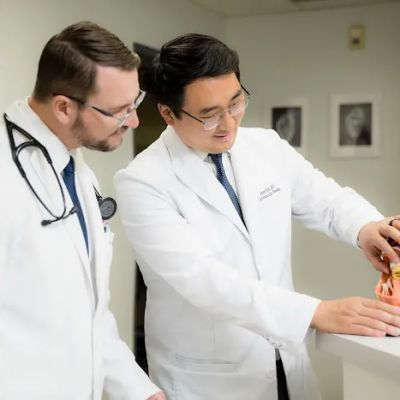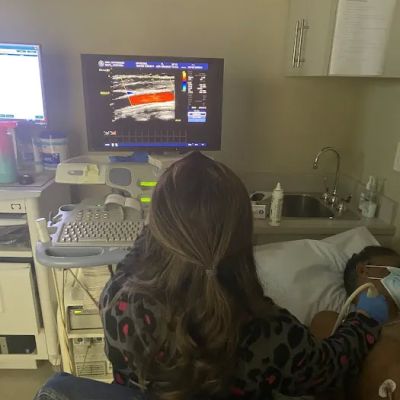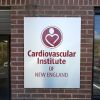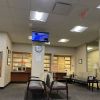The Role of a Cardiologist in Preventing Stroke: Essential Insights for Your Heart Health
When I first heard about someone I know suffering from a stroke, I was taken aback. It seemed like such an unpredictable and sudden event. But as I began to understand more about stroke prevention, I realized that much of what happens in a stroke is actually preventable with the right care and attention. The key player in helping to prevent strokes is often a cardiologist, a specialist trained to monitor, diagnose, and treat heart and blood vessel conditions that increase the risk of stroke. Their role in preventing strokes goes beyond just heart health – it’s about safeguarding your entire cardiovascular system.
Strokes are often a result of problems related to the heart and blood vessels, such as high blood pressure, clogged arteries, and irregular heart rhythms. These are all conditions that a cardiologist is well-equipped to manage. In this article, I’m going to explain the critical role a cardiologist plays in preventing stroke, what stroke prevention strategies they employ, and how you can work with a cardiologist to protect yourself from this life-altering condition. If you’ve ever wondered how to prevent a stroke or whether you’re at risk, keep reading to discover how a cardiologist can help.

1. Understanding Stroke and Its Link to Heart Health
Before we dive into the role of a cardiologist in stroke prevention, it’s important to understand what a stroke is and how it’s related to heart health. A stroke occurs when the blood supply to part of your brain is interrupted, either by a blockage (ischemic stroke) or a burst blood vessel (hemorrhagic stroke). The damage to the brain cells can cause permanent disability or death, depending on the severity of the stroke.
What many people don’t realize is that the risk factors for stroke often overlap with those of heart disease. High blood pressure, high cholesterol, atrial fibrillation (an irregular heart rhythm), and atherosclerosis (plaque buildup in the arteries) all contribute to the likelihood of having a stroke. This is where a cardiologist comes in. Cardiologists specialize in managing these risk factors, and by doing so, they can help lower the chances of a stroke occurring.
In my experience, once I learned that stroke could be linked to my own cardiovascular health, I made sure to visit a cardiologist for a full check-up. This proactive step helped me understand my risks and gave me the tools to prevent both heart disease and stroke.
Capital Health Medical Center – Hopewell
capital health medical center hopewell
1 Capital Way, Pennington, NJ 08534, USA

2. How Cardiologists Help Prevent Stroke: Key Prevention Strategies
A cardiologist uses a combination of lifestyle advice, medical treatment, and regular monitoring to reduce the risk of stroke. Here are some of the most effective strategies that cardiologists use to help patients prevent strokes:
- Managing High Blood Pressure: High blood pressure is one of the leading causes of both heart disease and stroke. Cardiologists routinely monitor and manage blood pressure by recommending lifestyle changes (such as a heart-healthy diet and regular exercise) and prescribing medications like ACE inhibitors, diuretics, or beta-blockers. When my own blood pressure was elevated, my cardiologist prescribed medication and helped me adjust my diet, which made a significant difference in reducing my stroke risk.
- Controlling Cholesterol Levels: Elevated cholesterol can lead to plaque buildup in the arteries, which restricts blood flow and increases the risk of stroke. Cardiologists prescribe cholesterol-lowering medications like statins and recommend dietary changes (such as reducing saturated fats) to help manage cholesterol levels. I was advised to incorporate more omega-3 fatty acids into my diet, which are known to improve heart health and reduce the risk of stroke.
- Treating Atrial Fibrillation (AFib): AFib is a type of irregular heartbeat that increases the risk of stroke because it can lead to blood clots forming in the heart. Cardiologists can manage AFib with blood thinners, rhythm control medications, and other treatments. I learned that managing this condition early on with the right care could prevent the serious consequences of a stroke.
- Addressing Atherosclerosis: Atherosclerosis, the buildup of plaque in the arteries, can restrict blood flow to the brain, leading to a stroke. Cardiologists help manage this condition through lifestyle changes, medications, and sometimes interventions like angioplasty or stenting. By taking steps to reduce plaque buildup, I was able to lower my chances of developing a stroke.
These strategies are just a few of the ways that cardiologists help reduce the risk of stroke. Regular visits to a cardiologist for screenings and risk assessments can make a huge difference in preventing a stroke before it happens.
3. The Importance of Regular Monitoring and Risk Assessment
One of the most crucial aspects of stroke prevention is regular monitoring. A cardiologist will assess your risk factors through routine check-ups, blood tests, and imaging studies (such as an ultrasound or CT scan). During these visits, the cardiologist can track how well your treatment plan is working and make adjustments if needed.
For example, when I started seeing my cardiologist, they suggested a series of tests to assess my cholesterol levels and heart function. Based on the results, my cardiologist adjusted my medications and provided lifestyle recommendations. This proactive monitoring helped me stay ahead of potential problems and made it much easier to prevent complications like stroke.
In addition to monitoring heart health, cardiologists also provide valuable education on lifestyle changes that can prevent stroke. They’ll help you understand the importance of a balanced diet, regular physical activity, and smoking cessation—all of which contribute to stroke prevention.
4. Case Study: How Early Intervention Can Prevent Stroke
To illustrate how crucial the role of a cardiologist can be in preventing a stroke, let’s take the case of my friend Lisa. Lisa had been experiencing occasional dizziness and shortness of breath. After visiting her cardiologist, she discovered that she had high blood pressure and a history of heart disease in her family. With the help of her cardiologist, Lisa implemented lifestyle changes and started a medication regimen. Her doctor also prescribed regular check-ups to monitor her condition.
Several months later, during one of her follow-up visits, her cardiologist noticed that her blood pressure was still elevated, even with medication. They immediately adjusted her treatment plan, and within a few weeks, her symptoms began to subside. Thanks to her cardiologist’s early intervention and ongoing care, Lisa avoided a potential stroke and is now living a healthier life with more confidence in her cardiovascular health.
5. Working with Your Cardiologist: Building a Stroke Prevention Plan
Working with your cardiologist is key to building a comprehensive stroke prevention plan. Your cardiologist will take into account your unique health history, family history, and risk factors to develop a personalized plan that works for you. Here’s what to expect when working with a cardiologist on stroke prevention:
- Detailed Risk Assessment: Your cardiologist will start by assessing your heart health and identifying any risk factors for stroke, such as high blood pressure, high cholesterol, or a history of heart disease.
- Tailored Treatment Plan: Based on the assessment, your cardiologist will work with you to create a treatment plan that includes medications, lifestyle changes, and regular monitoring.
- Ongoing Support and Education: Cardiologists are not just healthcare providers—they’re also educators. They will guide you in making the necessary changes to reduce your risk, providing resources and support along the way.
By actively working with your cardiologist, you can take charge of your heart health and significantly reduce the risk of stroke. Your cardiologist’s expertise will help ensure that you stay on track with your prevention plan and make any necessary adjustments to optimize your heart health.
6. Conclusion: Partnering with a Cardiologist for Stroke Prevention
The role of a cardiologist in preventing stroke cannot be overstated. By diagnosing and treating the underlying conditions that contribute to stroke, such as high blood pressure and cholesterol, cardiologists play a crucial role in helping you maintain a healthy heart and brain. With their expert guidance, you can significantly reduce your stroke risk and improve your overall cardiovascular health.
If you’re concerned about your risk for stroke or want to take proactive steps toward prevention, I highly recommend scheduling an appointment with a trusted cardiologist. Your heart health is worth the investment, and partnering with a specialist can make all the difference. For more information on finding a cardiologist or heart health resources, visit [Hickory Dickory Dock] to learn more about how you can protect your heart and prevent stroke.





















Deborah Heart and Lung Center
deborah heart and lung center
200 Trenton Rd, Browns Mills, NJ 08015, USA